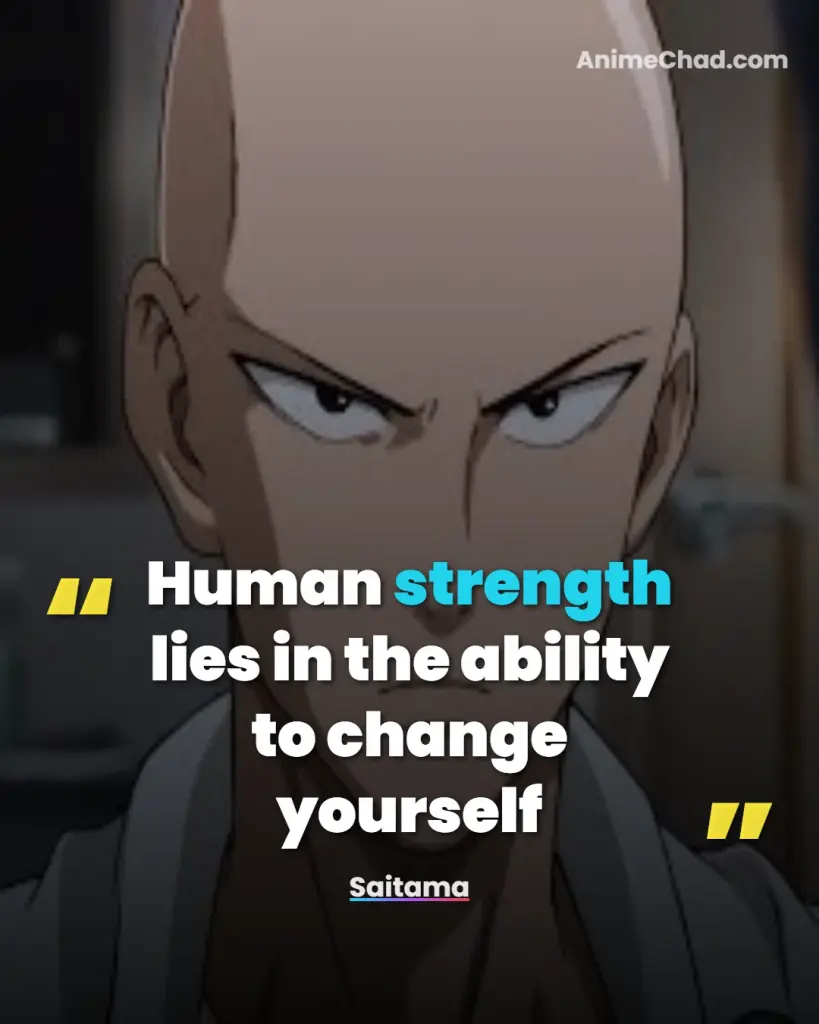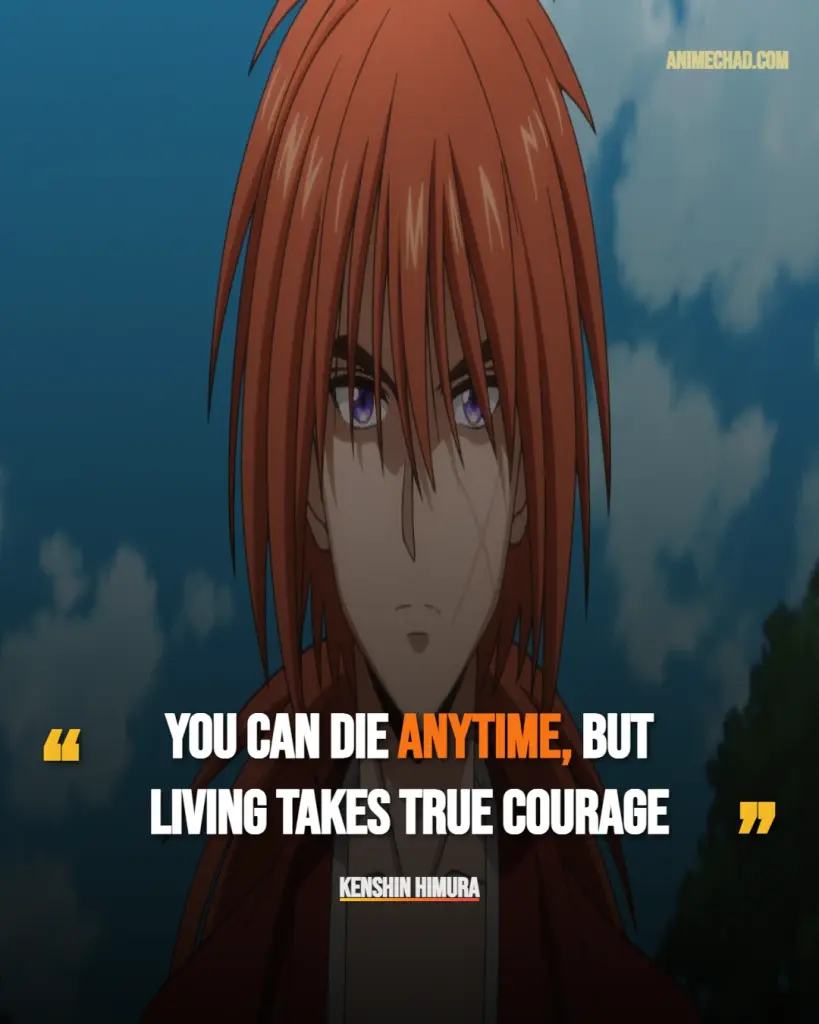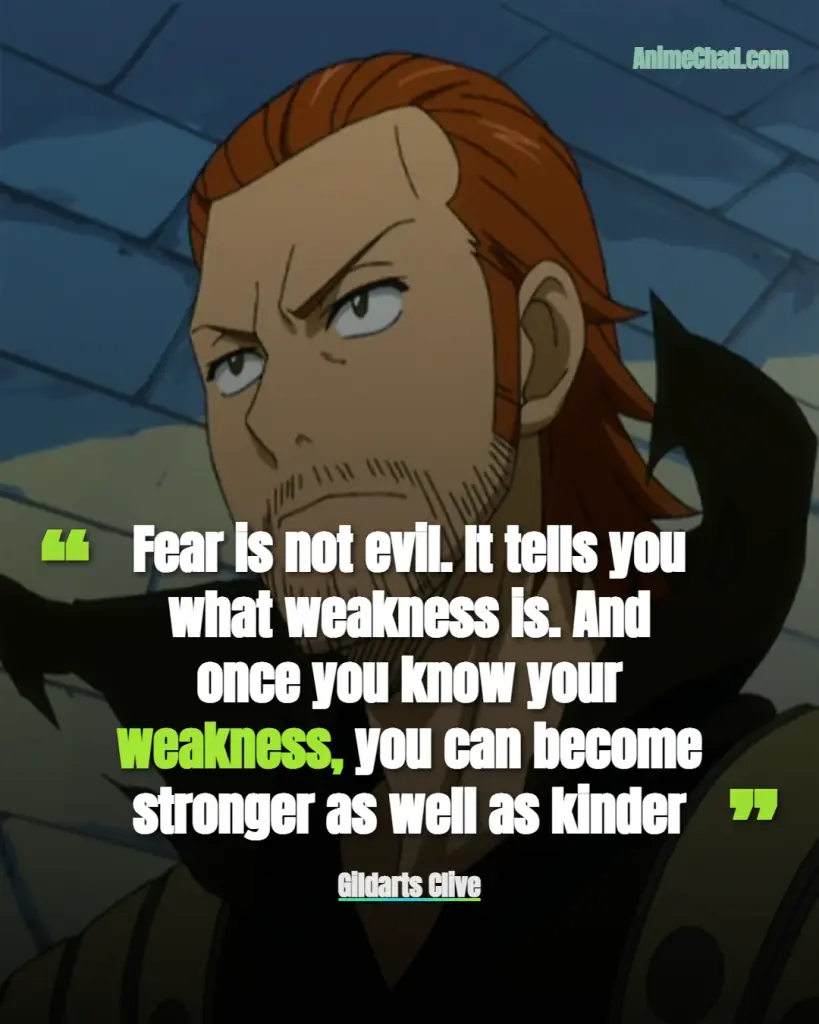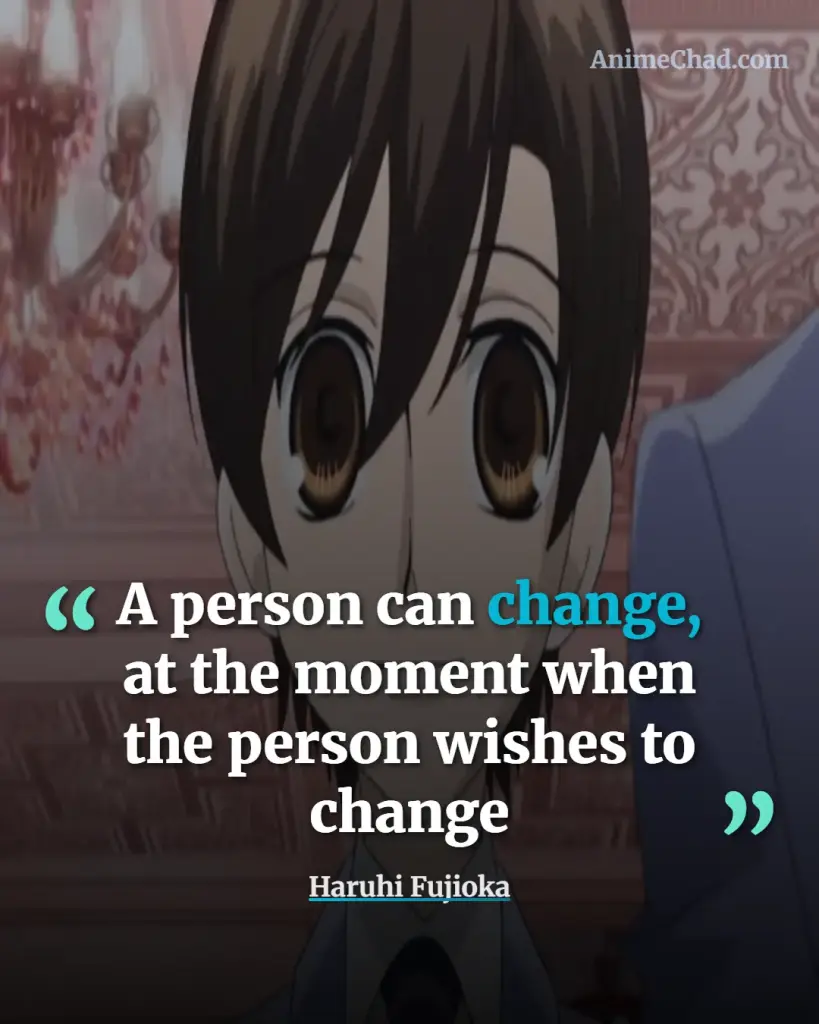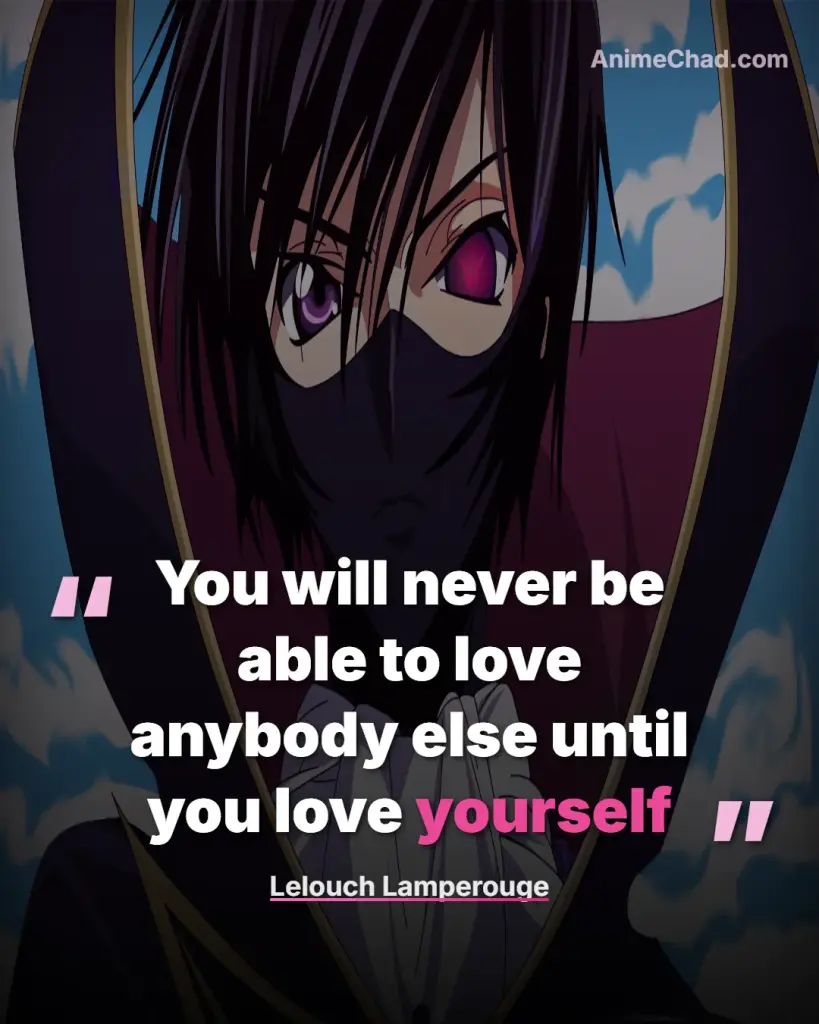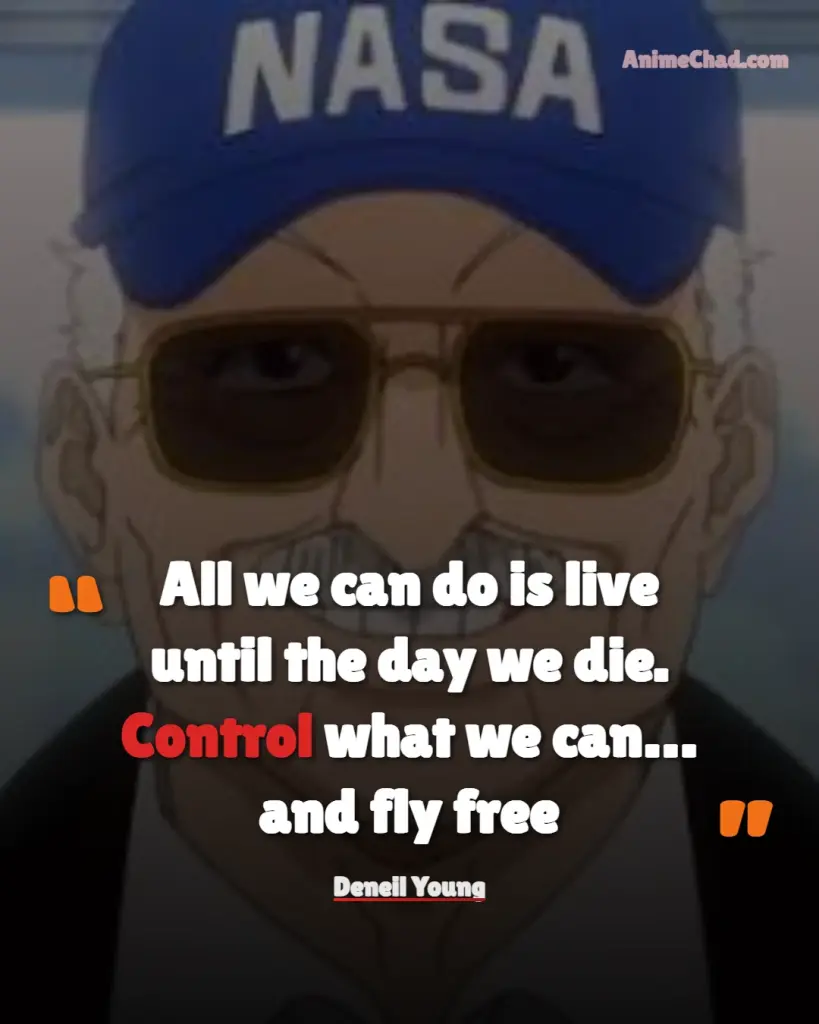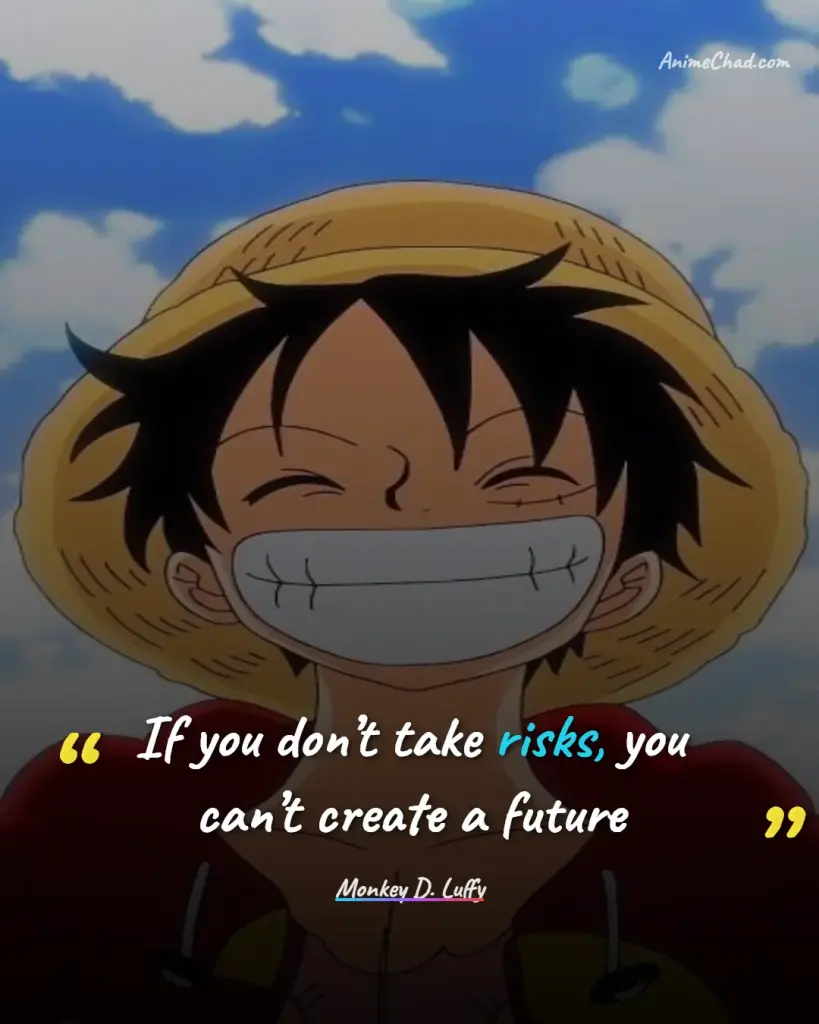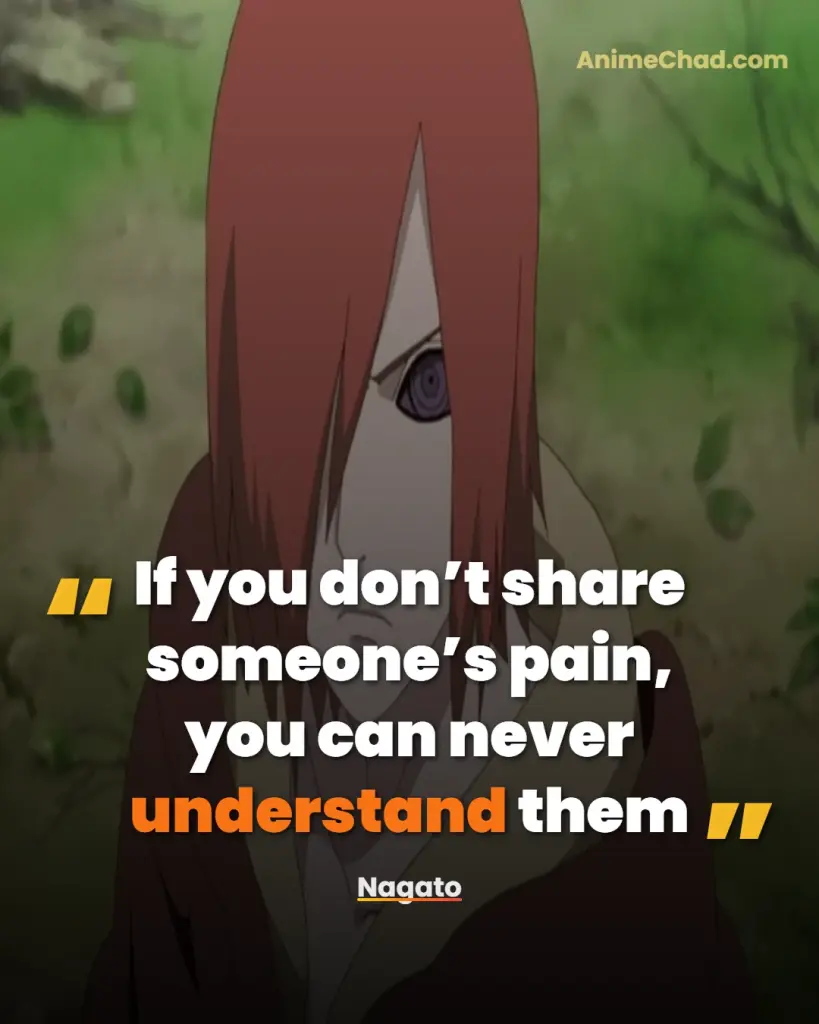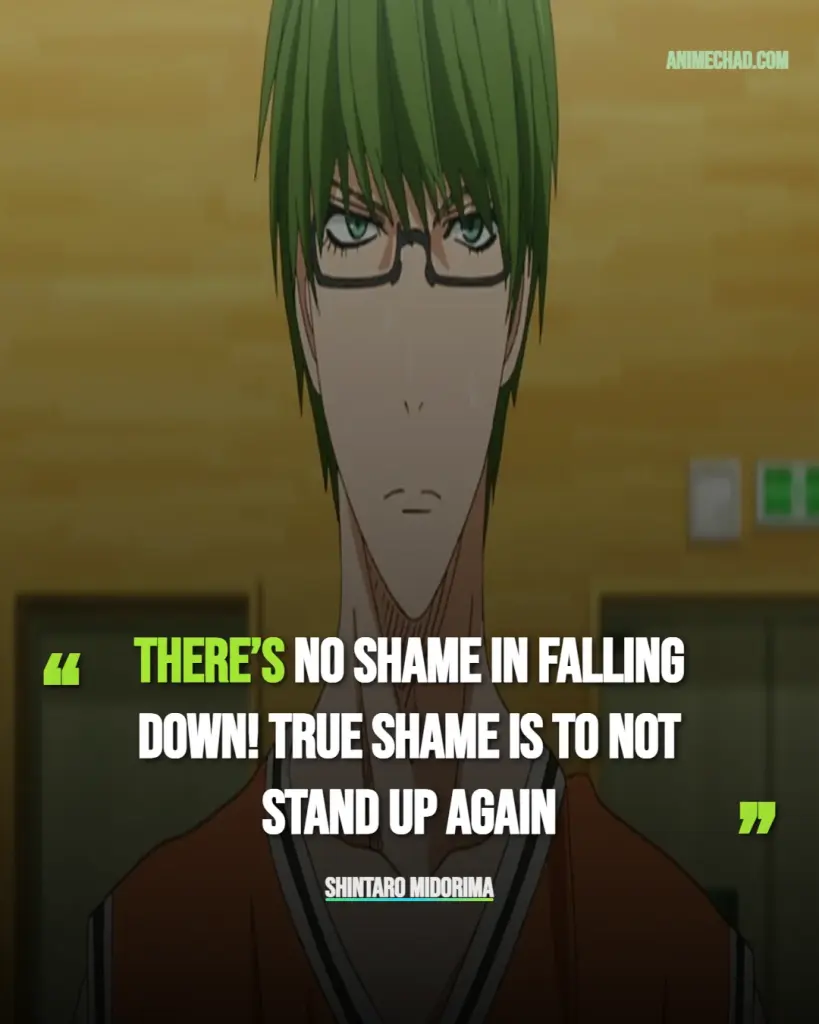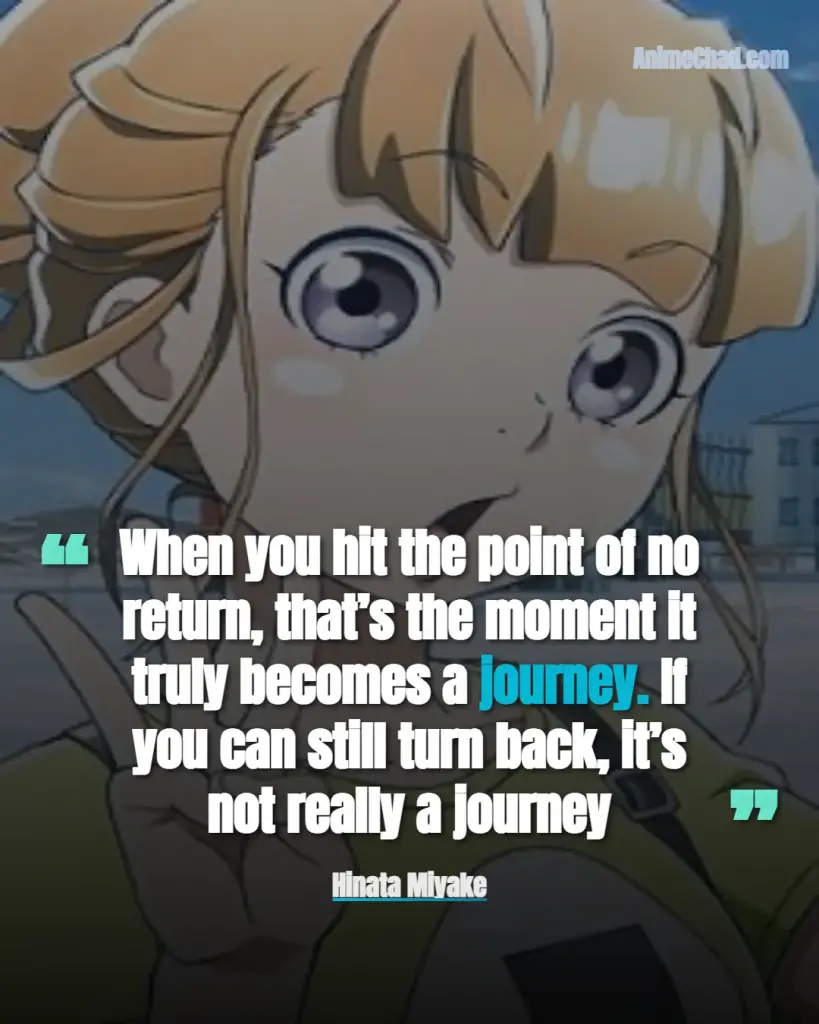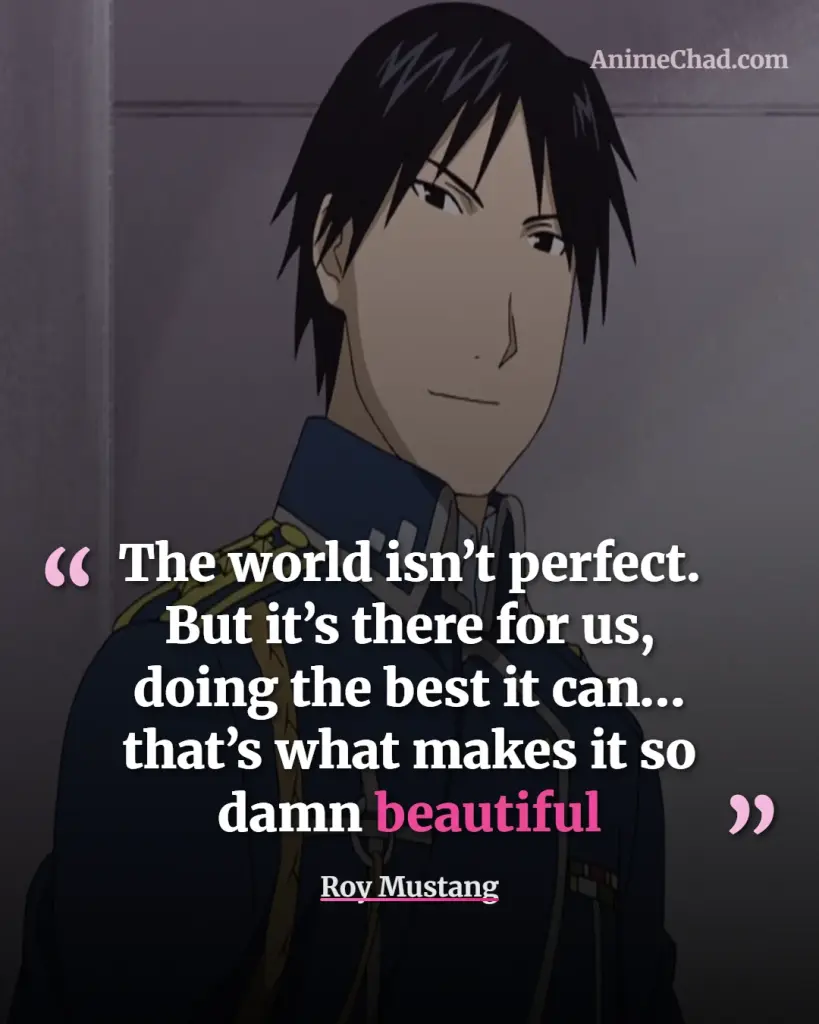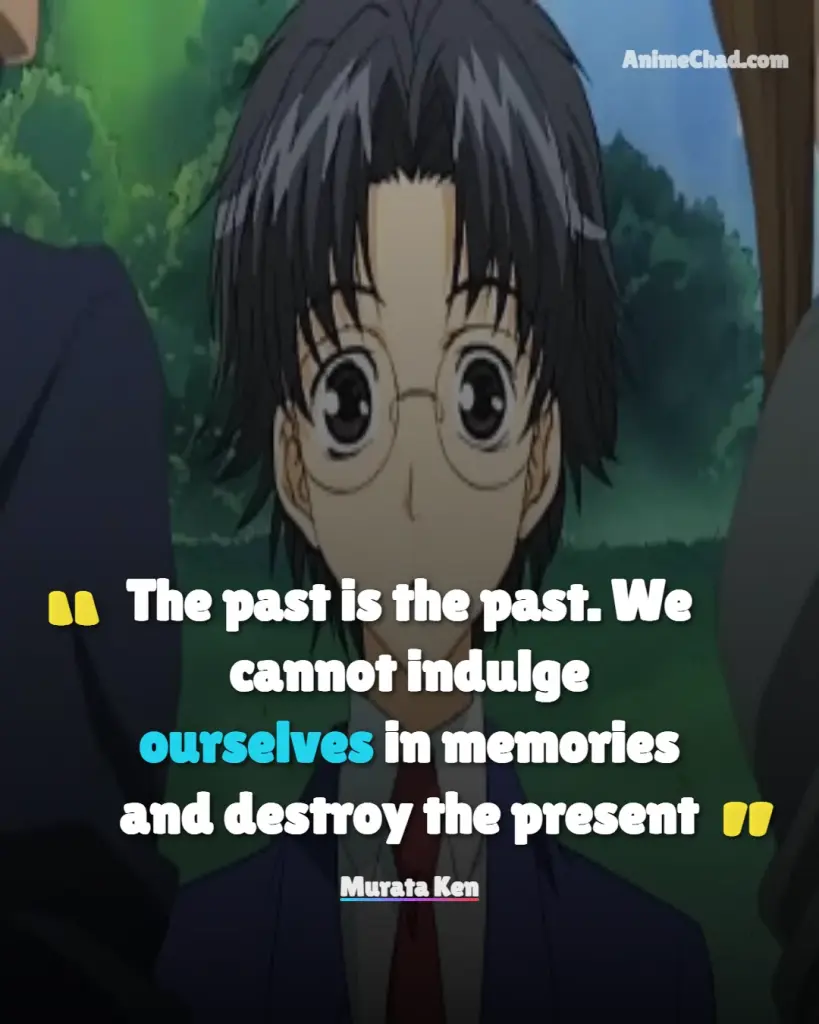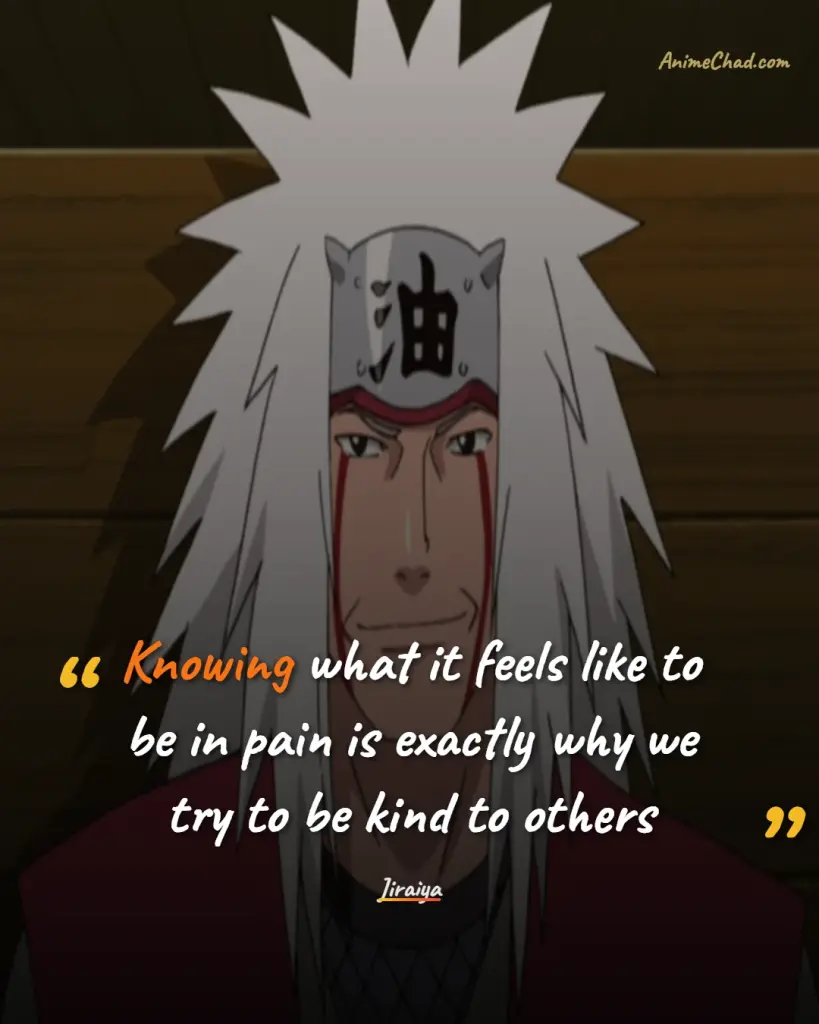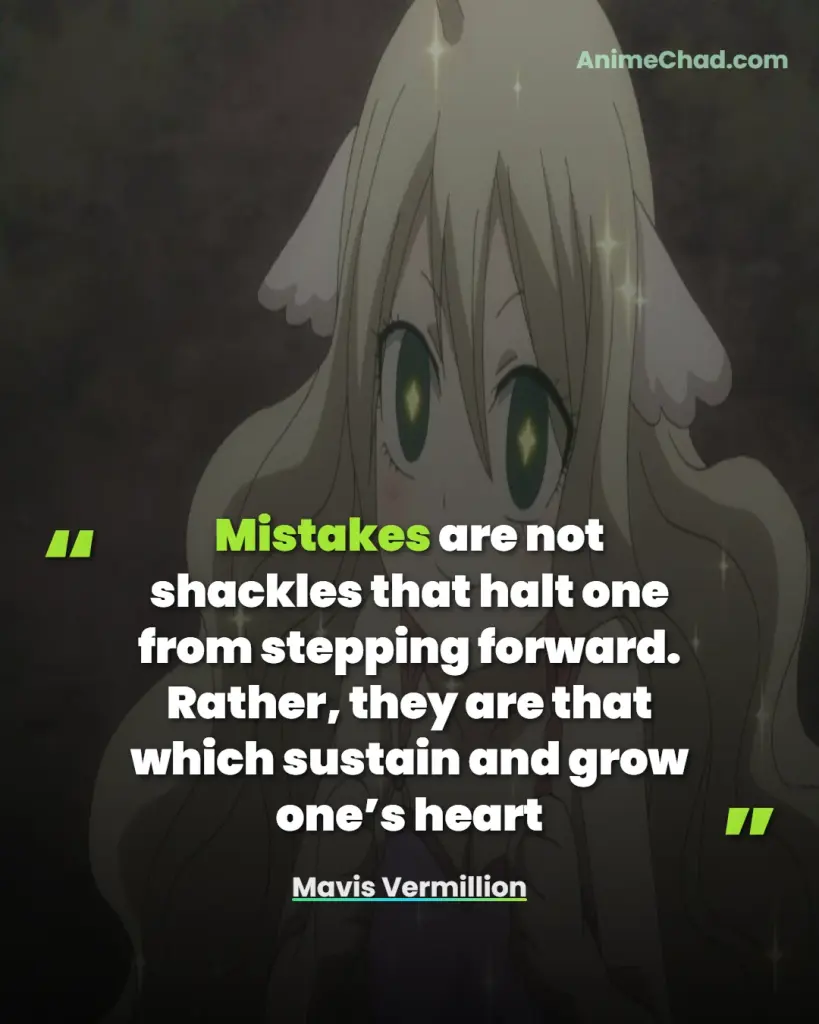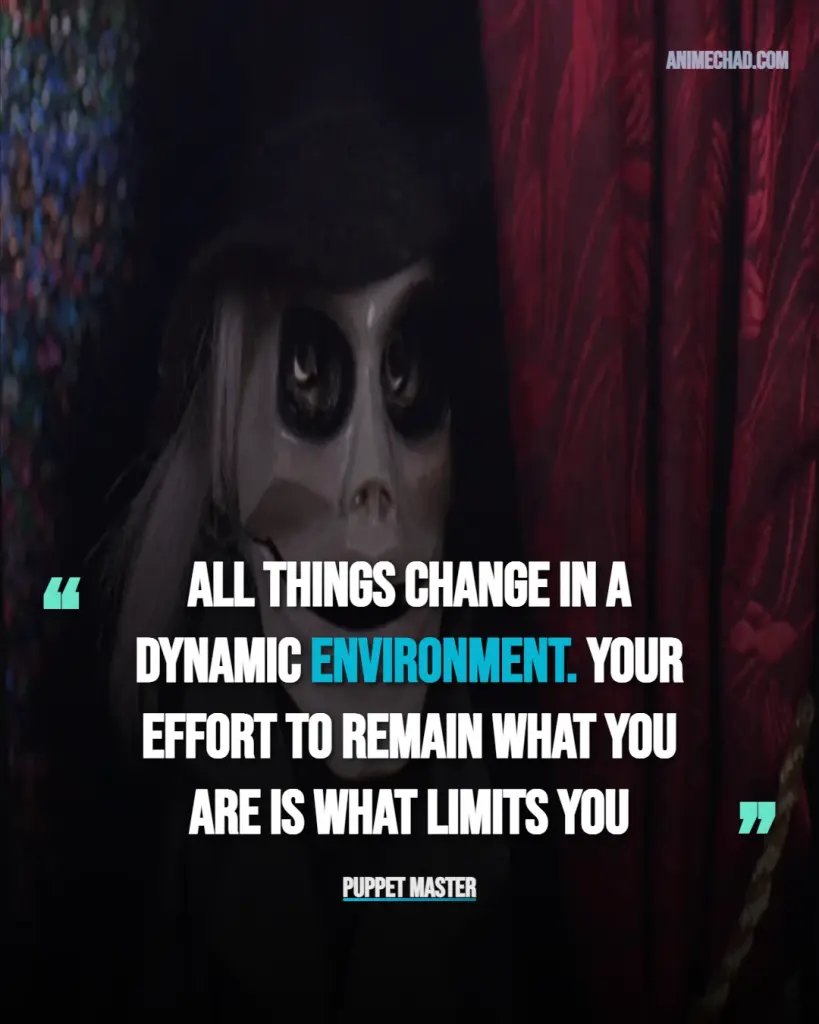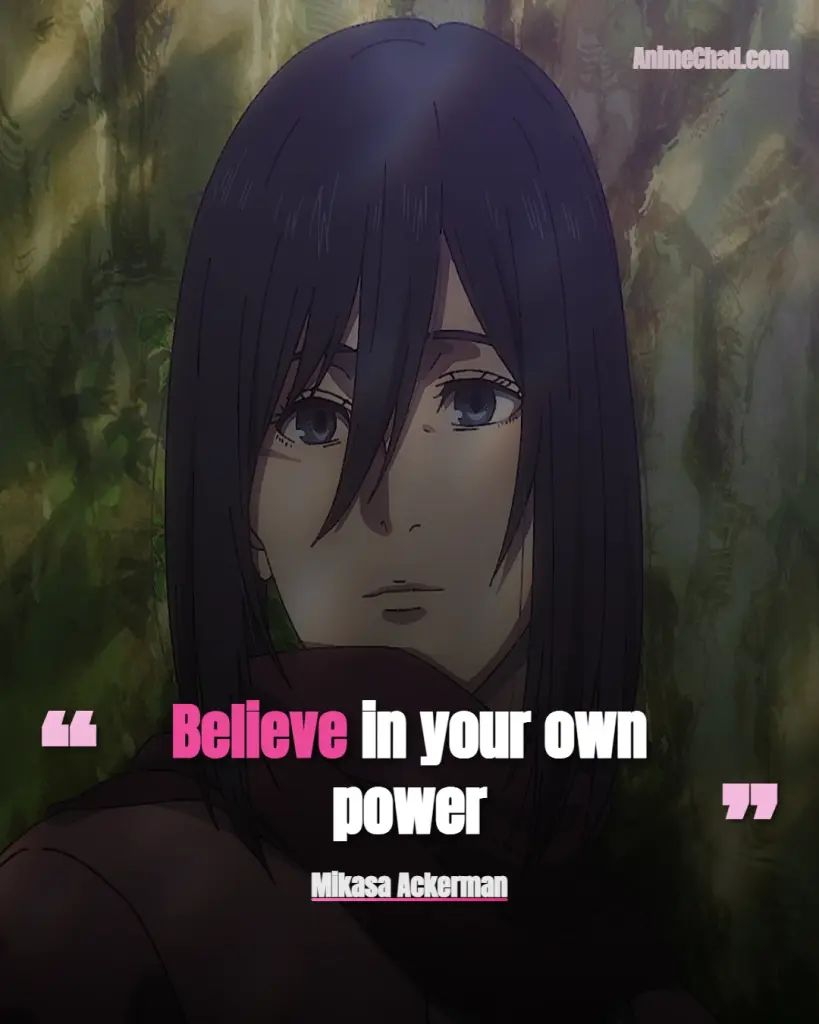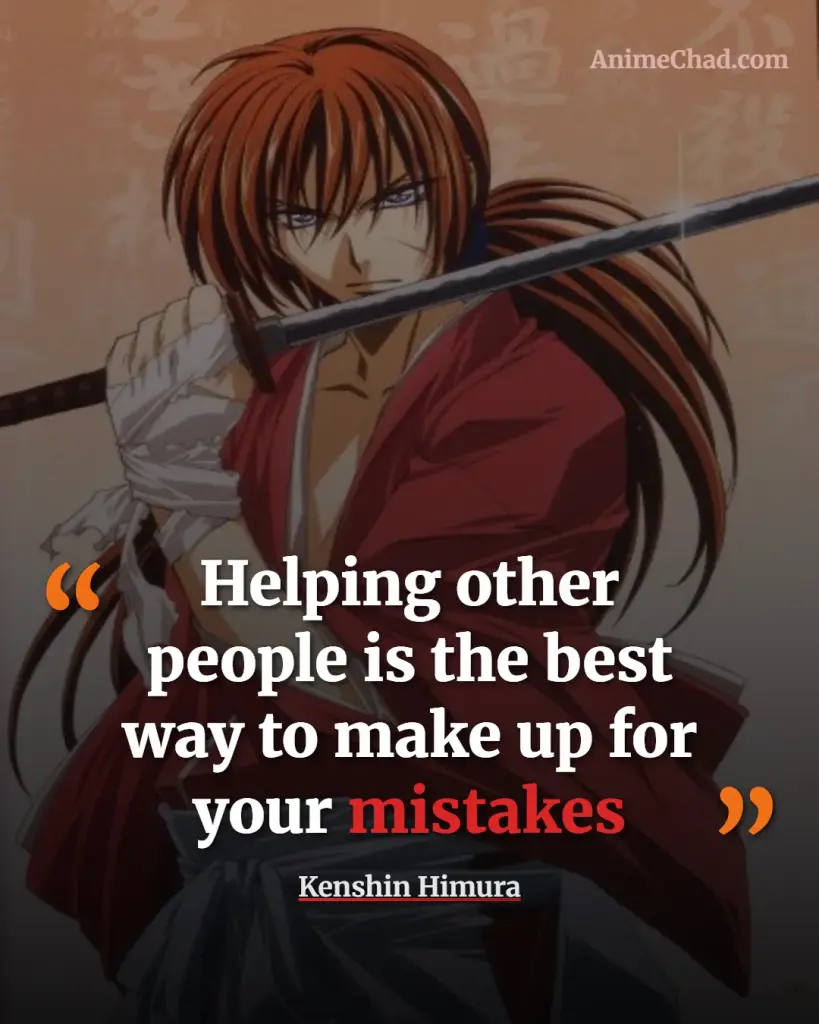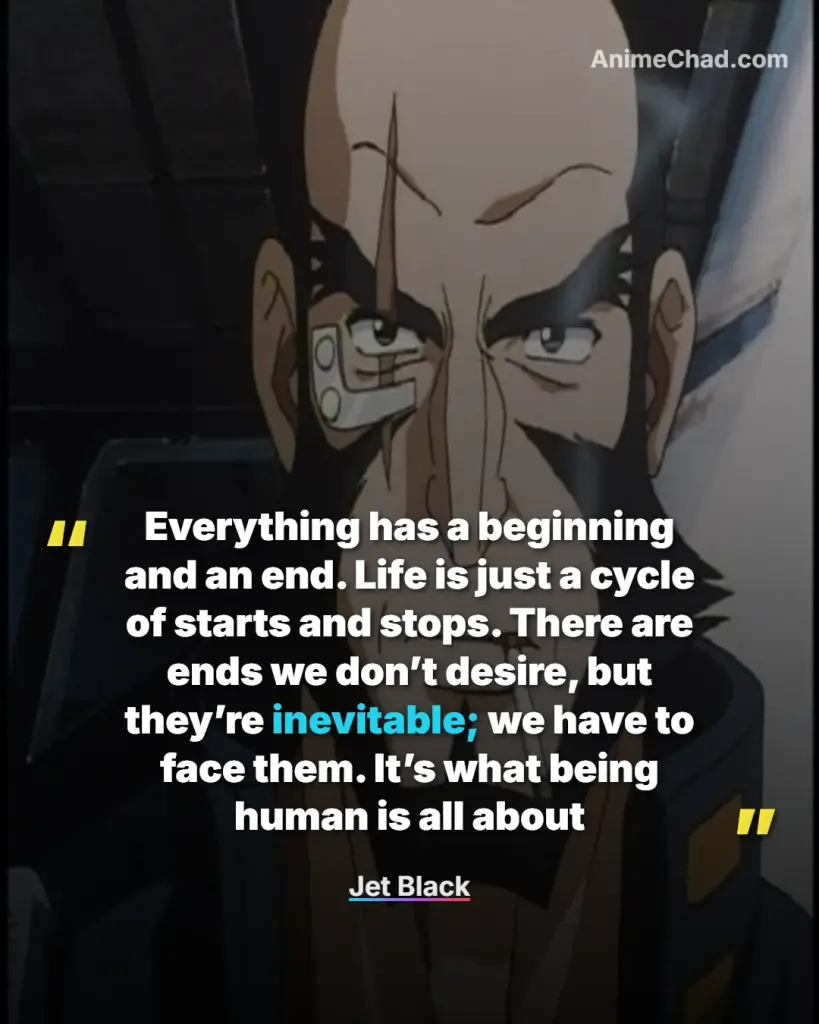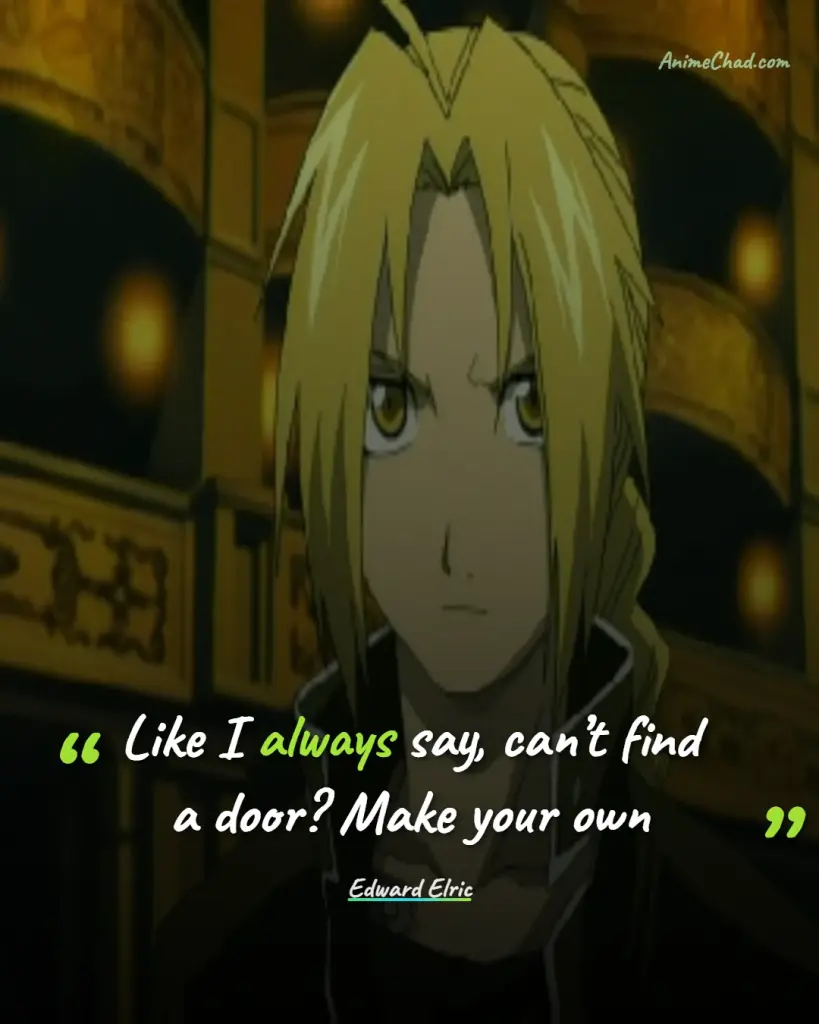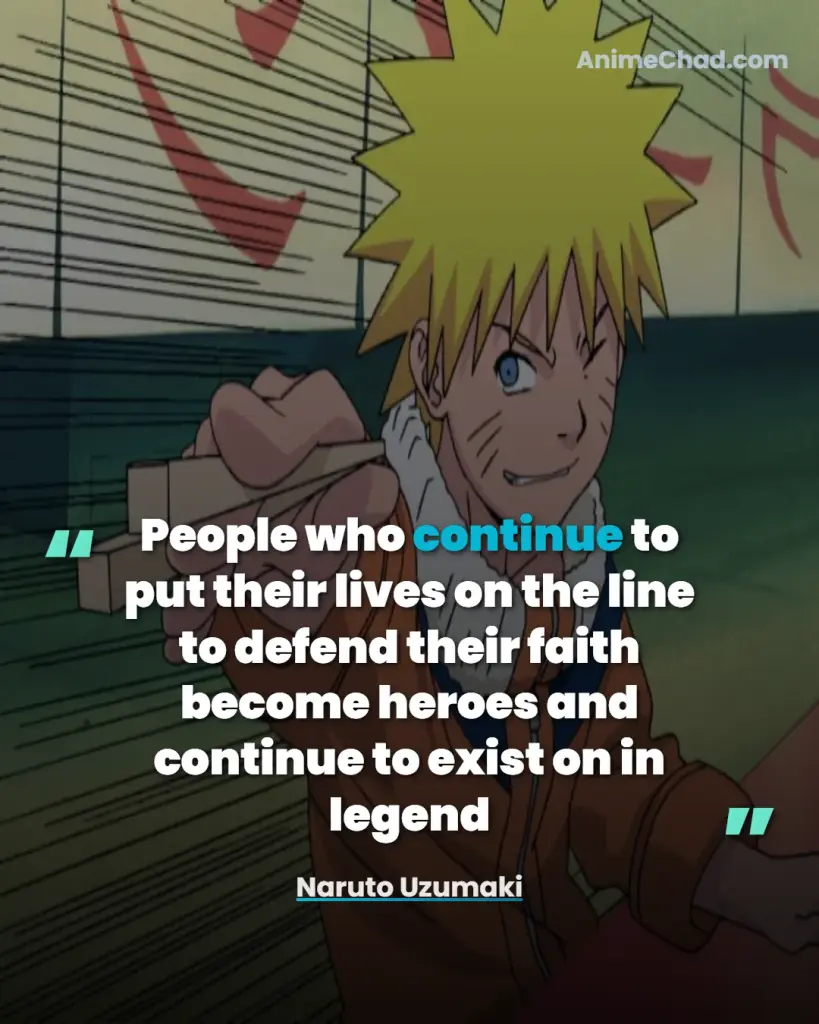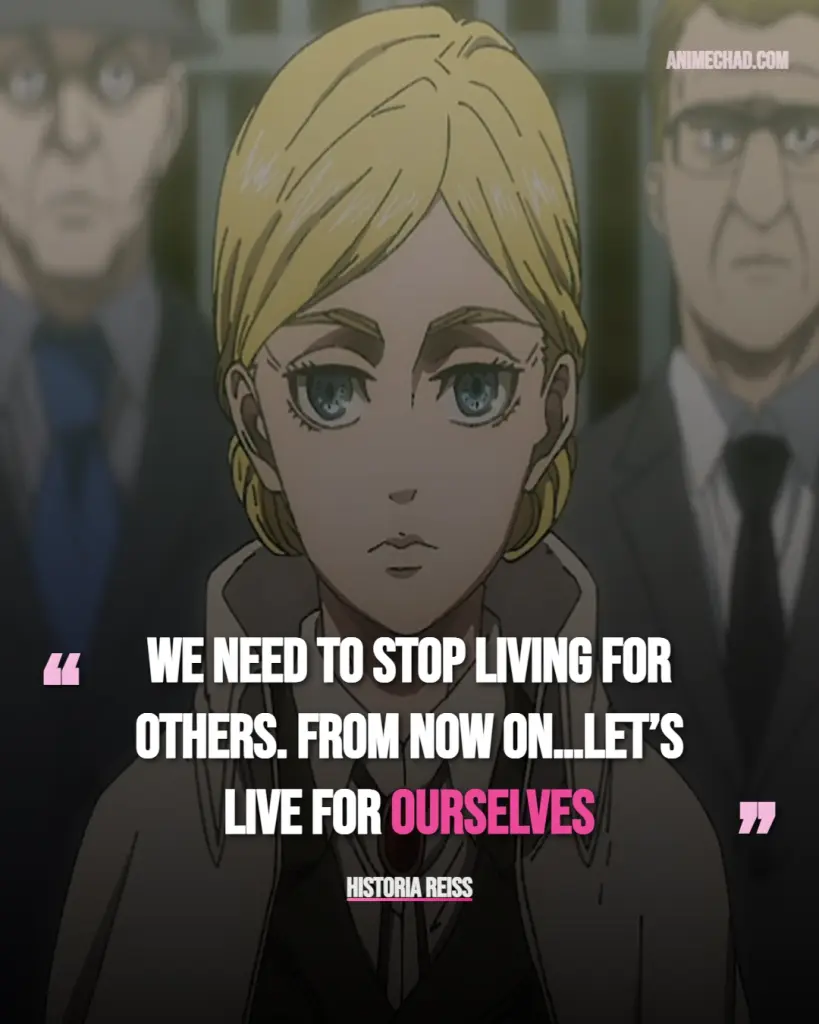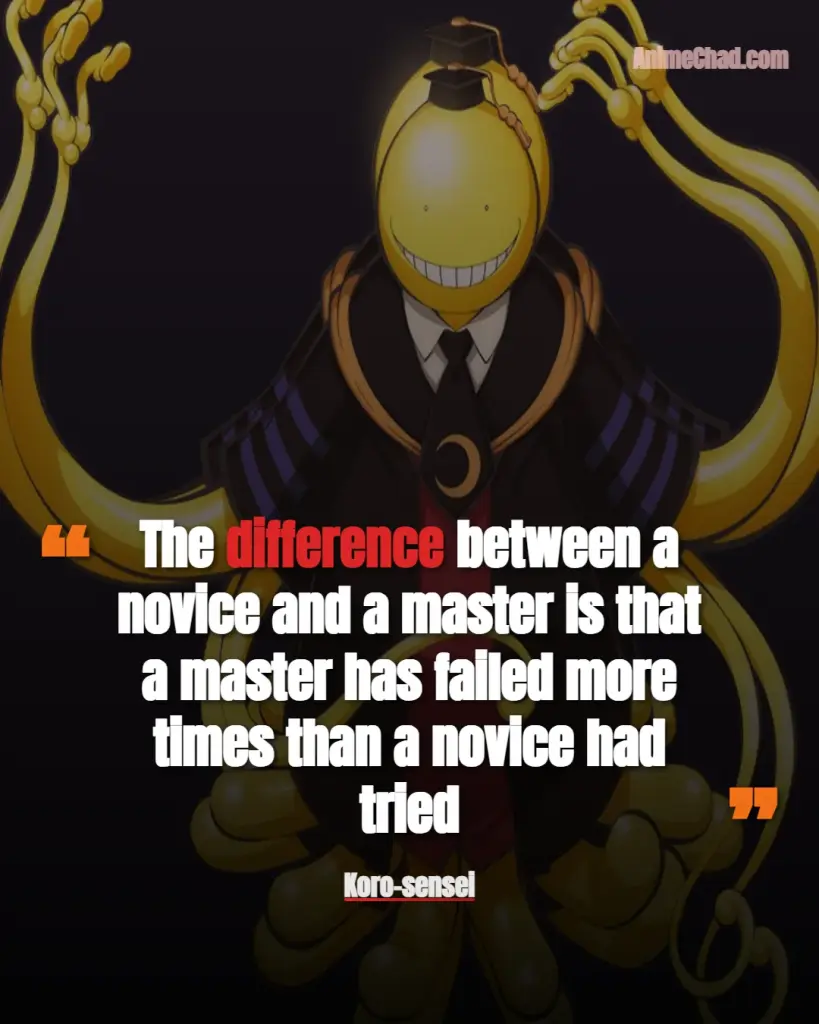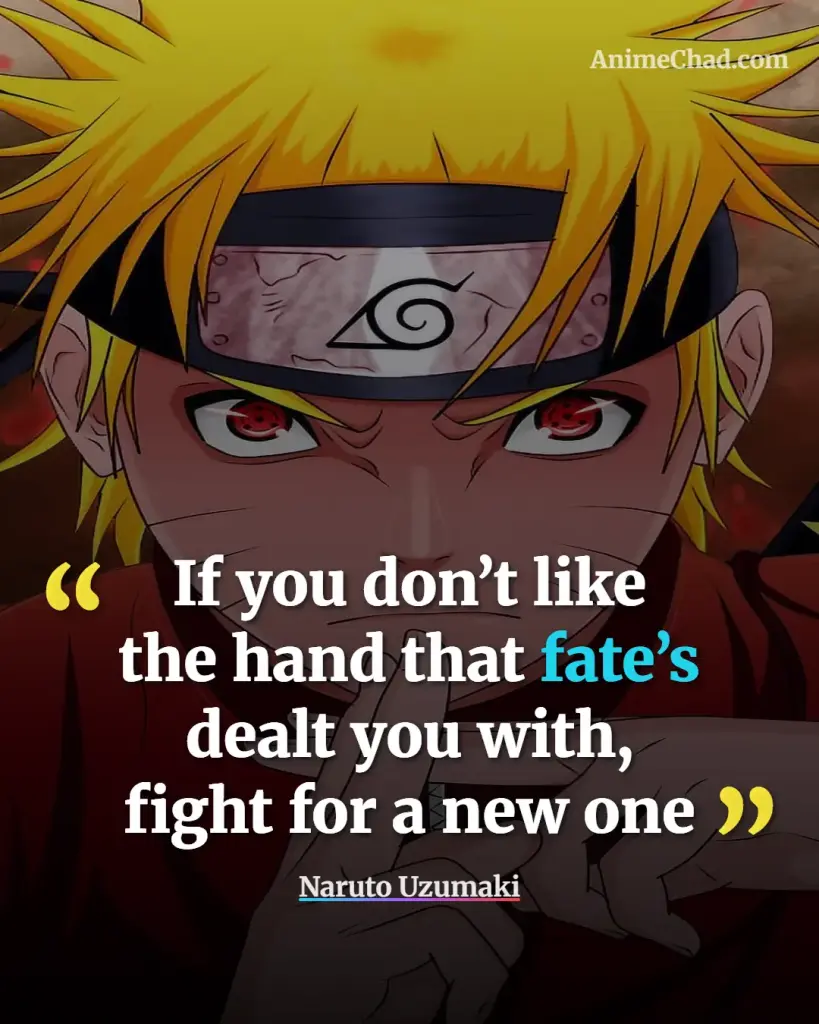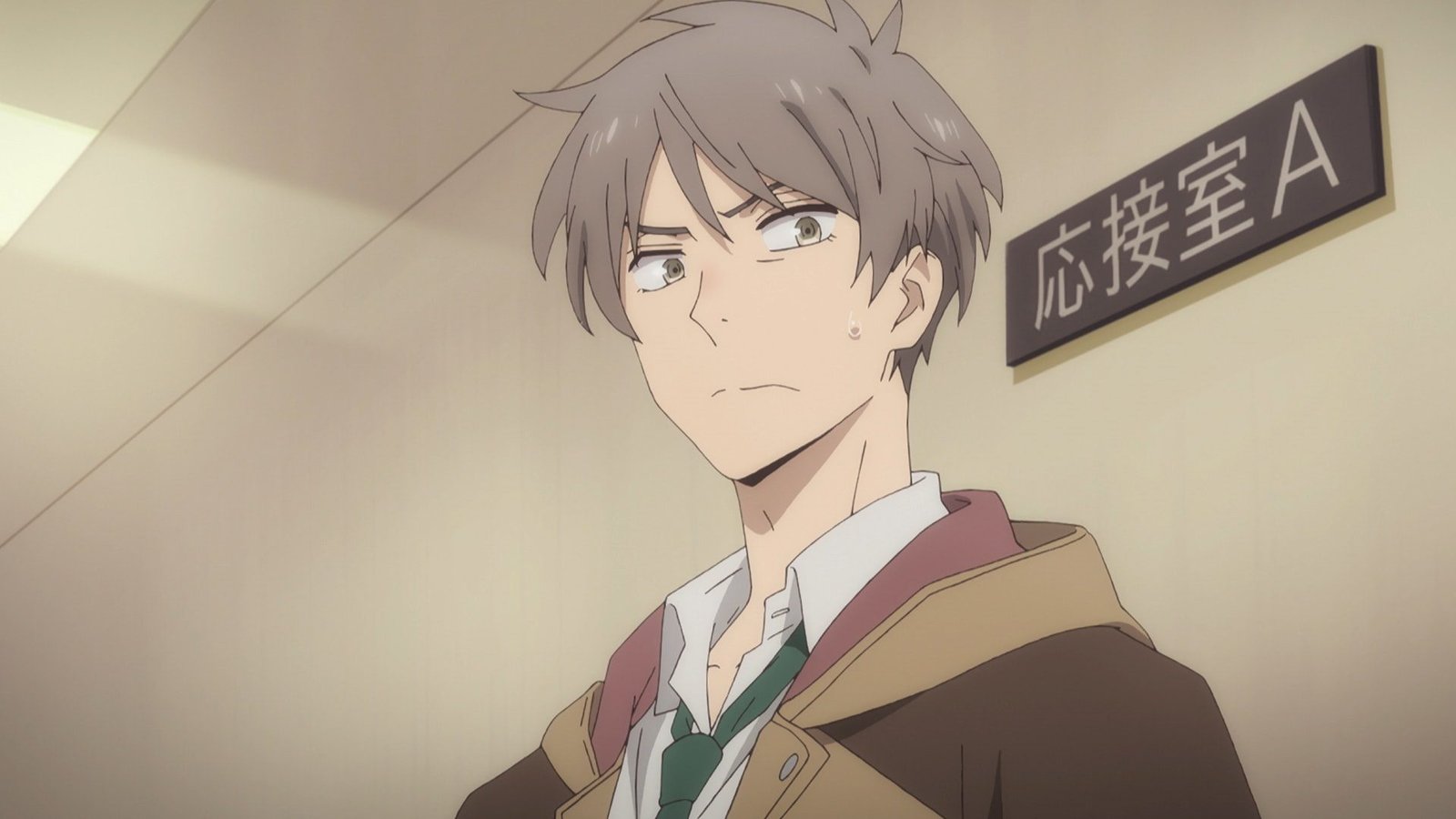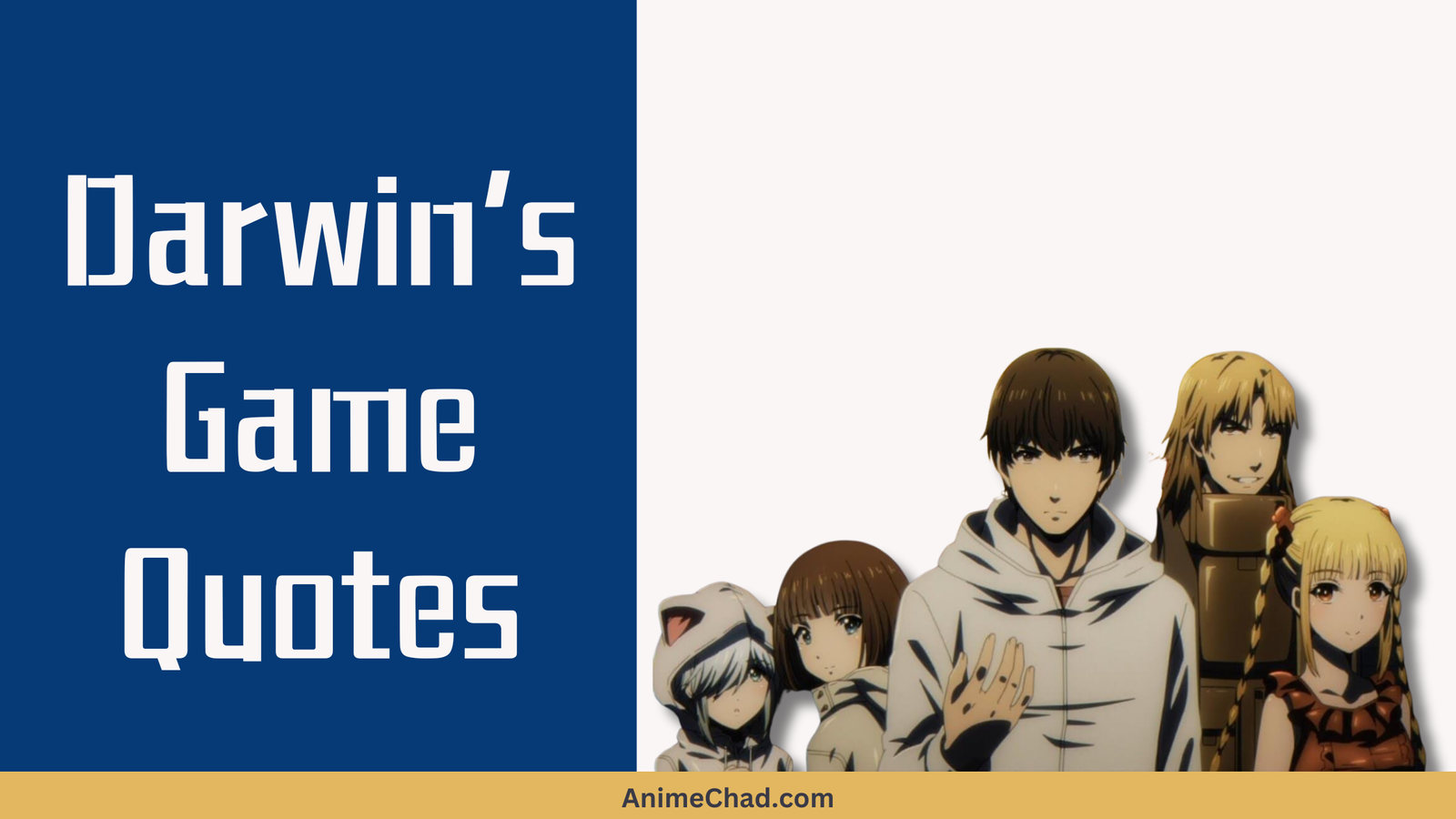Anime, with its diverse worlds and profound storytelling, often features characters who confront life’s deepest challenges, from loss and growth to resilience and purpose. Series like Naruto, One Piece, and Attack on Titan explore themes of perseverance, friendship, self-discovery, and the human condition amid both epic battles and quiet reflections.
This collection curates 25 impactful quotes about life, drawing from various anime to highlight emotional depth, character evolution, and universal lessons that resonate beyond the screen.
Human strength lies in the ability to change yourself
Episode 1 (Enter: Saitama)
Saitama
Emphasizes self-transformation in a mundane world, showing Saitama’s growth from boredom to heroic purpose, tying into themes of personal limits.
You can die anytime, but living takes true courage
Episode 3 (The Wandering Swordsman)
Kenshin Himura
Spoken during a reflective duel, it highlights Kenshin’s redemption arc, underscoring bravery in facing past sins amid Rurouni Kenshin’s atonement themes.
Fear is not evil. It tells you what weakness is. And once you know your weakness, you can become stronger as well as kinder
Episode 243 (The Five Kage’s Decision)
Gildarts Clive
In a heartfelt father-daughter moment, it drives character empathy, connecting to Fairy Tail’s bonds and growth through vulnerability.
A person can change, at the moment when the person wishes to change
Episode 12 (The Second Host)
Haruhi Fujioka
During club introspection, it reveals Haruhi’s independence, emphasizing self-initiated evolution in Ouran Highschool Host Club’s social dynamics.
You will never be able to love anybody else until you love yourself
Episode 25 (The Rebellion)
Lelouch Lamperouge
Amid strategic turmoil, it reflects Lelouch’s internal conflict, linking to Code Geass’s exploration of identity and relational depth.
All we can do is live until the day we die. Control what we can…and fly free
Episode 13 (The Asteroid Blues)
Deneil Young
In a philosophical spaceship chat, it fosters Young’s maturity, aligning with Space Brothers’ pursuit of dreams against life’s constraints.
If you don’t take risks, you can’t create a future
Episode 2 (The Straw Hat Pirates)
Monkey D. Luffy
Declared in an early adventure, it propels Luffy’s boundless optimism, central to One Piece’s themes of freedom and bold ambition.
If you don’t share someone’s pain, you can never understand them
Episode 135 (The Long-Awaited Reunion)
Nagato
Post-battle revelation, it marks Nagato’s tragic development, deepening Naruto’s empathy and cycle-of-hatred motifs.
There’s no shame in falling down! True shame is to not stand up again
Episode 10 (The First Game)
Shintaro Midorima
During a tense match, it inspires resilience, highlighting Midorima’s growth in teamwork within Kuroko’s Basketball’s competitive spirit.
When you hit the point of no return, that’s the moment it truly becomes a journey. If you can still turn back, it’s not really a journey
Episode 4 (The Southern Island)
Hinata Miyake
In an expedition turning point, it signifies Hinata’s determination, tying to A Place Further than the Universe’s exploration of irreversible growth.
The world isn’t perfect. But it’s there for us, doing the best it can… that’s what makes it so damn beautiful
Episode 13 (Flame of Fate)
Roy Mustang
After profound loss, it humanizes Mustang’s arc, resonating with Fullmetal Alchemist’s alchemy of imperfection and hope.
Simplicity is the easiest path to true beauty
Episode 1 (The Hand-Drawn Map)
Seishuu Handa
In a serene island moment, it aids Handa’s humility, connecting to Barakamon’s appreciation of everyday life’s elegance.
The past is the past. We cannot indulge ourselves in memories and destroy the present
Episode 5 (The Demon Sword)
Murata Ken
During advisory counsel, it pushes Ken’s forward-thinking, embodying Kyou Kara Maou!’s balance of history and progress.
Knowing what it feels like to be in pain is exactly why we try to be kind to others
Episode 329 (The Approaching Threat)
Jiraiya
Mentoring amid peril, it shapes Jiraiya’s wisdom, integral to Naruto’s compassion and mentorship cycles.
Mistakes are not shackles that halt one from stepping forward. Rather, they are that which sustain and grow one’s heart
Episode 176 (The Truth of the Betrayal)
Mavis Vermillion
In a guild crisis, it fosters Mavis’s leadership evolution, linking to Fairy Tail’s redemption through errors.
All things change in a dynamic environment. Your effort to remain what you are is what limits you
Episode 1 (Stand Alone Complex)
Puppet Master
Philosophical merge scene, it challenges identity, core to Ghost in the Shell’s evolution in a cybernetic world.
Believe in your own power
Episode 9 (The Rumbling)
Mikasa Ackerman
Battle climax assertion, it marks Mikasa’s independence, tying to Attack on Titan’s self-reliance amid chaos.
Helping other people is the best way to make up for your mistakes
Episode 45 (The End of the Journey)
Kenshin Himura
Post-redemption reflection, it drives Kenshin’s atonement, emphasizing restorative justice in Rurouni Kenshin.
Everything has a beginning and an end. Life is just a cycle of starts and stops. There are ends we don’t desire, but they’re inevitable; we have to face them. It’s what being human is all about
Episode 25 (Session 25: The Real Folk Blues (Part 1))
Jet Black
In a contemplative farewell, it deepens Jet’s stoicism, central to Cowboy Bebop’s existential cycles.
Whether a fish lives in a clear stream or a water ditch, so long as it continues swimming forward, it will grow up beautifully
Episode 1 (Assassination Time)
Koro-sensei
Classroom motivation, it inspires student potential, reflecting Assassination Classroom’s growth through persistence.
Like I always say, can’t find a door? Make your own
Episode 4 (The Gate)
Edward Elric
Inventive escape moment, it showcases Ed’s ingenuity, tying to Fullmetal Alchemist’s proactive alchemy of fate.
People who continue to put their lives on the line to defend their faith become heroes and continue to exist on in legend
Episode 100 (The Life of a Shinobi)
Naruto Uzumaki
Warfront inspiration, it elevates Naruto’s heroism, connecting to his series’ legacy of enduring belief.
We need to stop living for others. From now on…Let’s live for ourselves
Episode 64 (The Other Side of the Gate)
Historia Reiss
Rebellion turning point, it signifies Historia’s self-assertion, aligning with Attack on Titan’s autonomy themes.
The difference between a novice and a master is that a master has failed more times than a novice had tried
Episode 50 (The Final Lesson)
Koro-sensei
Mentoring failure, it builds resilience, highlighting Assassination Classroom’s mastery through repeated efforts.
If you don’t like the hand that fate’s dealt you with, fight for a new one
Episode 374 (The Last Mission)
Naruto Uzumaki
Defiant stand, it fuels Naruto’s development from outcast to leader, embodying rebellion against destiny in his saga.


